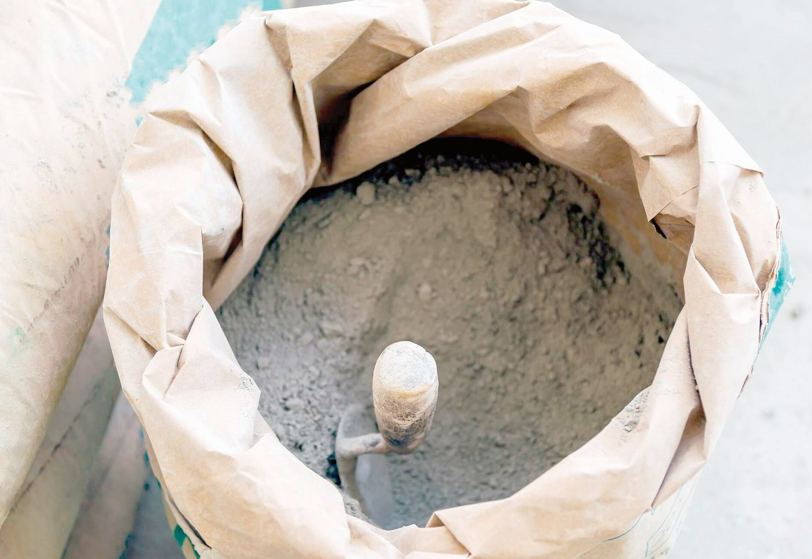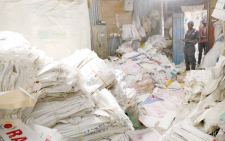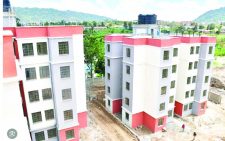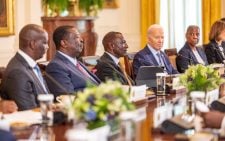Steel, clinker tax leave cement firms groaning

Tucked in the middle of the Finance Act 2023 is a seemingly innocent tax clause that has had adverse ramifications on Kenya’s cement manufacturers with the price of the product now having risen by 60 per cent since the law was enacted with fears that business may rapidly shift to neighbouring countries.
The 37.5 per cent tax imposed on the importation of steel billets and clinker, a vital component in the production of cement, has already forced two cement companies to suspend their operations while two others are fighting for survival.
A new levy of 17 per cent of that taxation goes towards what is known as export promotion, a charge that industry players say is too punitive and gnaws at the government’s own policy on affordable housing.
Interestingly, when the proposed 2023/24 budget was tabled in the National Assembly for debate, then known as the Finance Bill 2023, majority Kenya Kwanza MPs endorsed the proposals.
However, soon after the Budget and Appropriations Committee of the National Assembly Committee chaired by Kiharu MP Ndindi Nyoro published the Finance Bill and invited public participation, Kenya Association of Manufacturers (KAM) came out strongly to oppose the increased levies on imported clinker and steel billets, which then stood at 10 per cent.
The representative organisation for manufacturing value-add industries in Kenya argued that the proposed law would cripple the local cement and steel industry.
Imported raw materials
To begin with, KAM is concerned with the whole philosophy of imposing levies on imported raw materials and intermediate products, ostensibly to promote exports. KAM sees no economic relationship between imposing of levies and duties on clinker, steel or packaging products.
In our view, imposing levies on imports makes Kenya uncompetitive compared to other EAC partner States. This import levy on raw materials goes against established taxation regimes such as EAC Common External Tariff (CET) and Export Duty Remission (EDR),” it argued.
The association said that whereas some sections of the then proposed bill meant well for the investors, those on importation of raw materials were particularly punitive and inhumane.
Observed KAM: “For instance, the imposition of a 10% levy imported clinker which constitutes a 60-70% of inputs meant for cement production goes against the National Independent Clinker Verification Committee report 2021.”
The Committee comprises ministries in charge of National Treasury, Trade and Industry, Petroleum and Mining, Kenya Bureau of Standards (KEBS), cement industry players and KAM.
It was established that Kenya should not impose higher duties on clinker until 2026.” To push its case, KAM said the implementation of this levy therefore, poses serious negative economic and social ramifications.
“In a meeting held on January 26, 2023 between Ministry of Investments, Trade and Industry (MITI), KAM and cement manufacturers, the companies committed to an accumulative investment of Sh100 billion in clinker manufacturing within the period mention above if the current taxation regime that affords them imported clinker is maintained as ‘as is” as per the committee’s recommendations,” it added in the statement.
“However, the proposed import levy will do less to protect the local clinker producers and, instead, will lead to importation of cheaper finished cement from EAC partner-States which may lead to the loss of 100,000 jobs. The philosophy will replicate in the other proposed sectors, including billets, wire rods and kraft.”
After its passage in the Legislature and presidential assent to make it law, Busia Senator Okiya Omtatah, Law Society of Kenya and civil society lobby, Katiba Institute moved to challenge the Finance Act in court though taxation on imported steel and clinker was not in the plaint.
Kenya has seven cement manufacturing companies with a combined work force of over 100,000 direct and indirect employees.
Until recently, all of them relied on imported clinker, a key intermediary ingredient in the manufacture of cement, mostly from China, Indonesia, Vietnam, United Arab Emirates and Egypt to facilitate the production of cement.
So far, only two firms, National Cement and Mombasa cement, have been able to set up factories to locally manufacture clinker, a feat they only achieved early last year.
In October last year, Savannah Cement Ltd, suspended its production indefinitely after the weight of the tax on clinker became too heavy to bear.
The State-owned, controversy-riddled East African Portland Cement Company (EAPCC) has been struggling for the better part of 2022 due to lack of cash.
Bamburi Cement, the market leader which has approximately a million tonnes of clinker capacity, has been forced to sell its operations in Uganda.
Ndovu Cement and Rai Cement companies which also have no clinker in Kenya are equally struggling. There are concerns that the businesses could be moving to Tanzania.
In July last year, in the wake of the taxation razzmatazz and streets demonstrations to oppose the same in Kenya, Tanzanian President Samia Hassan Suluhu was reported as saying that her country was registering a record Foreign Direct Investments (FDI) migration from Kenya after the country’s business environment increasingly became unattractive to entrepreneurs owing to the instability in the country.
Production of cement
The price of cement in Kenya has risen from around Sh500 per 50kgs in July last year to an estimated Sh800, representing a 60 per cent increase.
Affected firms now claim the tax on steel and clinker was specifically meant to benefit National Cement and bring down the rest of the local companies involved in the production of cement.
They argue that the tax on clinker and steel billets are very “punishing” and an indirect silent decree for all other players to buy their steel and clinker from National Cement, a fellow competitor who currently enjoys what is said to be in favour by influential people in the Kenya Kwanza administration.












